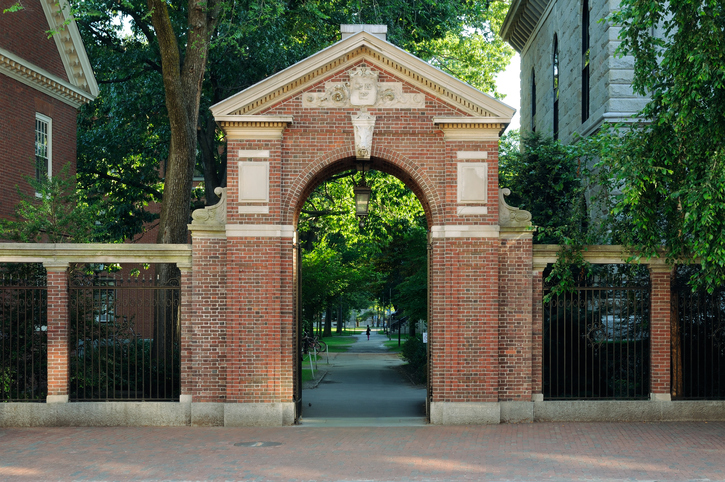Are legacy admissions “reverse affirmative action” for the 1 percenters at Ivy-Plus colleges, and do they shut out deserving students?
Legacy Admissions Come Under Fire
America’s most selective colleges are facing growing calls to abolish the practice of giving admissions priority to the relatives of alumni. The “legacy” preference, as it is known, is firmly entrenched in higher education, especially at private colleges, and experts say eliminating it is easier said than done. A Washington Post analysis found that at more than 100 selective schools, including the entire Ivy League, alumni-applicant relationships are considered in admissions decisions. Critics call the practice “reverse affirmative action.”
Several studies have shown that legacy admissions overwhelmingly favor wealthy and white applicants, benefiting such students over applicants of color and other disadvantaged groups. While some highly selective universities and colleges have dropped legacy admissions— including Amherst, Johns Hopkins, Carnegie Mellon, and recently Wesleyan University—most are reluctant to give up the practice, arguing that it helps build a strong intergenerational community and encourages alumni donations that fund scholarships and financial aid. Nonetheless, most Americans are firmly against it. A Pew Research Center survey found that 75 percent of respondents believe that legacy status should not be a factor in college admissions.
Harvard’s Legacy Admissions Challenged by Civil Rights Group
In another sign of the mounting pressure on legacy admissions, a civil rights group, Lawyers for Civil Rights, has filed a complaint with the Education Department, alleging that Harvard’s admission system violates the Civil Rights Acts because it “disproportionately advantage[s] white applicants.”
The group, which represents three Black and Latino groups—the Chica Project, African Community Economic Development of New England, and the Greater Boston Latino Network—claims the Ivy League school grants special privileges to mostly white applicants—“not because of anything they have accomplished, but rather solely because of who their relatives are.”
Depending on the outcome of the investigation, the government could order Harvard to cease such practices or lose access to federal money. But such determinations are “exceptionally rare,” according to a former deputy assistant secretary in the Education Department’s civil rights office. Congressional Democrats Senator Jeff Merkley of Oregon and Representative Jamaal Bowman of New York have reintroduced a bill that would ban colleges from giving preference in admissions to children of alumni and donors. The bill would block colleges that offer legacy seats from participating in federal financial aid programs.
Affirmative Action for the 1 Percenters
According to a new study, children from families in the top 1 percent (defined as earning more than $611,000 a year) are 34 percent as likely to attend an “Ivy-Plus college”—the eight Ivy League universities as well as Stanford, MIT, Duke, and the University of Chicago—as those from middle-class families with comparable SAT/ACT scores. And those from the top 0.1 percent are more than twice as likely to get in.
As public pressure mounts, a handful of colleges say they will end legacy preferences, including the University of Minnesota—Twin Cities, Carnegie Mellon University, and Wesleyan University. Critics say dropping legacy admissions might be just a good PR move.
Wesleyan, for instance, never heavily favored legacy applicants to begin with. Only about 5 percent of admitted freshmen were the children of alumni. And only about half of them ended up attending Wesleyan. It’s a conundrum for the wealthiest private universities, like Princeton and Harvard, which couldn’t begin to maintain their operations on tuition alone.
At Harvard, tuition revenue pays only 21 percent of operating costs, which begs the question, who would we rather have funding elite institutions: wealthy people whose families have histories at these schools or corporations and foreign governments?
For more School Reform News.
